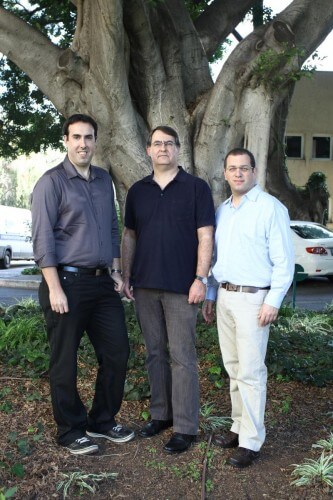Our intestines contain a huge amount of bacteria. Maintaining balance in such a dynamic system requires constant maintenance. In this process, immune cells called macrophages play a central role, meaning "big eaters"

Spoiled education of the younger generation is a phenomenon (sometimes real, sometimes simulated), which we know from the time of Socrates, through the "espresso generation", to the present day. When it comes to humans, we have many ways of acting in this regard: starting with grumpy living room conversations, up to the development of new and far-reaching educational programs. But when it comes to cells, the phenomenon can harm health: immune cells that have not been properly educated can cause inflammatory diseases of the intestine.
Our intestines contain a huge amount of bacteria - both those that stay in them permanently and help digestion, and also those that enter them with food and drink. Maintaining balance in such a dynamic system requires constant maintenance. In this process, immune cells called macrophages play a central role, meaning "big eaters", which help to clean waste and maintain tissue health. The macrophages are formed from young cells, monocytes, which come from the bloodstream and settle in the intestinal mucosa.
Weizmann Institute of Science scientists, and their research partners, discovered that for about ten days the new monocytes are in an "educational series" - which apparently transmit molecular signals within the mucosa - during which they learn to express the same genes as the older immune cells. At the end of the "education series" these cells begin to contribute to the proper maintenance of the mucosa.
But if the mucosa is already infected with inflammation, for example as a result of a bacterial infection, those young monocytes behave completely differently - like teenagers who are easily subjected to social pressure, who when they arrive in a problematic environment become criminals themselves. They do not go through the necessary "education series", so the expression pattern of their genes is not suitable for its purpose. As a result, instead of maintaining the intestines, these cells begin to contribute to inflammation and make it worse.
This wild behavior of immune cells may explain what happens during an exacerbation of inflammatory bowel diseases. Even a small damage to the intestinal lining, which is caused by bacteria or food, and in a healthy person is repaired immediately, leads to persistent inflammation. And once the inflammation started, the new monocytes, behaving like juvenile delinquents, refuse to be "educated", and increase the inflammation instead of curing it.
The research was carried out by Prof. Stefan Jung, doctor and research student Dr. Ehud Zigmond, Dr. Chen Verol from the Sourasky Tel Aviv Medical Center, Julia Parsha Pinto and Dr. Guy Shahar from the Department of Immunology at the Weizmann Institute of Science, and Dr. Gilgi Friedlander from the biological services unit at the institute, in collaboration with scientists from the Hebrew University of Jerusalem, and with scientists from the USA, Germany and France.

The findings of the study, carried out in transgenic mice developed by Prof. Jung, were recently published in the scientific journal Immunity. In this article, the scientists point to new ways to treat inflammatory bowel diseases. As part of one approach, the arrival of the young monocytes to the intestines is temporarily stopped as soon as a new inflammation begins, in order to prevent its worsening. In their study in mice, Prof. Jung and his research partners showed that antibodies that inhibit the supply of new monocytes to the colon do indeed create relief in inflammation.
But for the long term, as in many areas of life, the great promise for the future lies precisely in education. When the scientists decipher in detail the process of "education" of the monocytes in the intestinal lining, it may be possible to make sure that this "education" is carried out properly, so that the young monocytes "behave well" and contribute to health and not to disease.
